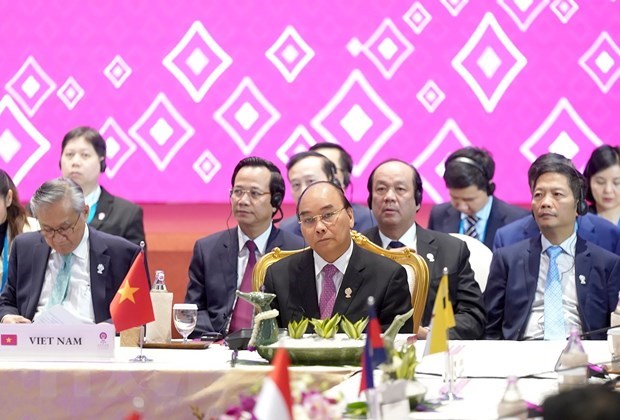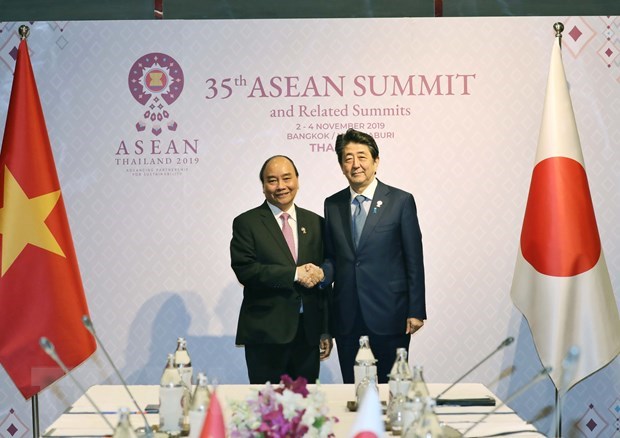PM concludes activities at 35th ASEAN Summit
Prime Minister Nguyen Xuan Phuc attended the 3rd Regional Comprehensive Economic Partnership (RCEP) Summit and met with Japanese PM Abe Shinzo on November 4, wrapping up his activities at the 35th ASEAN Summit and Related Summits.
 |
| Prime Minister Nguyen Xuan Phuc (centre) at the 3rd Regional Comprehensive Economic Partnership (RCEP) Summit (Photo: VNA) |
At the RCEP Summit, participating leaders issued a joint statement concluding that the countries involved have completed text-based negotiations for all 20 chapters of the RCEP and essentially all their market access issues.
India has some unsolved problems, so RCEP participating counties will work together to resolve these outstanding issues in a mutually satisfactory way. The pact will be scrutinized in preparation for its signing in 2020.
The RCEP is a multilateral trade agreement between the 10 member states of ASEAN - Malaysia, Brunei, Cambodia, Indonesia, Laos, Myanmar, the Philippines, Singapore, Thailand and Viet Nam - and its six Free Trade Agreement partners, namely China, Japan, the Republic of Korea, Australia, New Zealand and India.
Once formed, the RCEP will have a combined population of 3.56 billion people and a trade value of over 1 trillion USD, or 29 percent of the global total.
 |
| PM Nguyen Xuan Phuc and his Japanese counterpart Abe Shinzo (Photo: VNA) |
During a meeting with his Japanese counterpart, PM Phuc stated Viet Nam considers Japan a trustworthy and long-standing partner with which it shares several mutual strategic benefits.
Viet Nam supports Japan in promoting its role regionally and globally, he said.
Abe took the occasion to thank Viet Nam for its assistance to Japan as the coordinator of ASEAN-Japan relations.
Japan is looking forward to Viet Nam assuming its ASEAN chairmanship next year, the leader added, stating that the two countries will work together to tackle regional and global challenges.
Both PMs were pleased with the comprehensive and robust growth of the Viet Nam – Japan extensive strategic partnership.
They agreed to increase exchanges of all-level delegations, particularly high-ranking ones, and strengthen bilateral cooperation in trade, investment, infrastructure construction, labour, and ODA use.
They also highlighted the importance of stepping up bilateral coordination at multilateral forums in response to regional and global challenges, including the East Sea issue.
(Source: VNA)